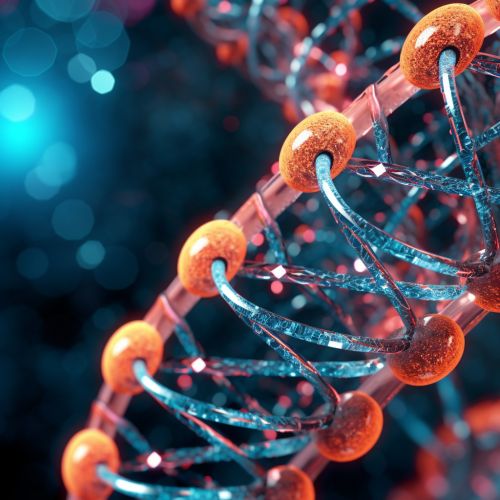Pyrimidine Metabolism Disorders
Introduction
Pyrimidines are essential building blocks of deoxyribonucleic acid and ribonucleic acid, the genetic material in all living organisms. Pyrimidine metabolism disorders are a group of rare inherited metabolic disorders that affect the body's ability to metabolize pyrimidines properly. These disorders can lead to a variety of symptoms and health problems, depending on the specific disorder and the severity of the metabolic disruption.


Pyrimidine Metabolism
Pyrimidines are synthesized in the body through a series of biochemical reactions known as the pyrimidine biosynthesis pathway. This pathway involves several enzymes, each of which catalyzes a specific step in the process. Once synthesized, pyrimidines are incorporated into DNA and RNA molecules during the process of nucleic acid synthesis.
Pyrimidines can also be broken down and excreted from the body. This process, known as pyrimidine catabolism, also involves a series of enzymes. Disruptions in either pyrimidine biosynthesis or catabolism can lead to pyrimidine metabolism disorders.
Disorders of Pyrimidine Metabolism
There are several different types of pyrimidine metabolism disorders, each caused by a deficiency in a different enzyme involved in pyrimidine biosynthesis or catabolism.
Orotic Aciduria
Orotic aciduria is a disorder of pyrimidine biosynthesis caused by a deficiency in the enzyme uridine monophosphate synthetase (UMPS). This enzyme is responsible for converting orotic acid into uridine monophosphate, a key step in the biosynthesis of pyrimidines. Symptoms of orotic aciduria can include developmental delay, failure to thrive, and megaloblastic anemia.
Dihydropyrimidine Dehydrogenase Deficiency
Dihydropyrimidine dehydrogenase deficiency is a disorder of pyrimidine catabolism caused by a deficiency in the enzyme dihydropyrimidine dehydrogenase (DPD). This enzyme is responsible for the initial step in the breakdown of pyrimidines. Symptoms can include developmental delay, seizures, and a variety of neurological problems.
Other Disorders
Other disorders of pyrimidine metabolism include Beta-aminoisobutyric aciduria, Dihydropyrimidinase deficiency, and Uridine monophosphate hydrolase deficiency. Each of these disorders is caused by a deficiency in a different enzyme involved in pyrimidine metabolism.
Diagnosis and Treatment
Diagnosis of pyrimidine metabolism disorders typically involves biochemical testing to measure the levels of pyrimidines and their metabolites in the body. Genetic testing can also be used to identify mutations in the genes that encode the enzymes involved in pyrimidine metabolism.
Treatment for pyrimidine metabolism disorders varies depending on the specific disorder and the severity of symptoms. In some cases, dietary modifications or supplementation with certain nutrients can help to manage symptoms. In other cases, medications or other treatments may be necessary.
Conclusion
Pyrimidine metabolism disorders are a group of rare inherited metabolic disorders that can cause a variety of health problems. While these disorders are rare, they highlight the importance of pyrimidines and their metabolism in human health and disease.
